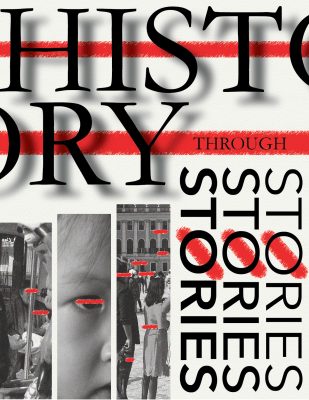At the risk of sounding melodramatic, it’s hard to think of a time when understanding history has mattered more than it does right now.
Most of us have been fed a steady diet of U.S. history that is true only to one narrative, but a heightened focus on race relations in this country has pushed an alternative to the spotlight. President Donald Trump, on the other hand, has called for the creation of a more patriotic lesson plan that will teach young Americans to “love America.”

Understanding history through narratives is important, but there is also a danger in doing so.
History offers insight into how past problems arose, which allows modern-day society to see patterns that might not be noticeable in the moment. The importance of understanding how the issues of yesterday affect us today cannot be understated, but the process of doing so is subjective by nature.
What impacts one person in a negative way may impact another in a positive way, and as such may later be told in an entirely different light. This is because history necessarily depends on a narrative, a kind of story that goes from A to B with certain events in between.
Without any kind of narrative, history just becomes a set of facts with no relation to the present or the future. The fact that something happened is intriguing only up to a certain point, but it is the narrative that forms around that event that sparks interest.
A good example of this “history in a vacuum” versus “history as a story” is the history of race relations in the United States. Stand-alone events — such as Nat Turner’s slave rebellion of 1831, the Tulsa Race Massacre of 1921 or the Los Angeles riots of 1992 — have certain value when considered by themselves, but it is almost impossible not to see the cause before and the effect after.
Understanding the narrative of history is not only important for understanding its modern context, but it is also intrinsic to human behavior. One of the capacities we have as humans that separates us from other animals is our capacity to have a theory of mind. Theory of mind is the basic ability to understand why someone acts a certain way and how they may act in the future.
Our theory of mind is what makes the history of something such as Turner’s rebellion so interesting as well as topical. Once we understand the setting, we then begin to see Turner and his followers, as well as the other slaves and slaveowners, as characters in a story. The historical event starts and ends much like the arc of a typical story regardless of what actually happened, but we are also able to trace its impact all the way up to modern times.
Storytelling makes history both more impactful and more fun, but it also comes with drawbacks. For example, if not all the events of the past are clearly told, then a false narrative can take form and lead our thinking astray. Even scarier, in a perfect situation where all the facts and voices are present and clear, our theory of mind may still piece together parts of the story that do not truly belong.
In a weird, roundabout way, our understanding of history may actually get worse the more we recall and narrativize it. Like memory, every time we retell history, we open up the possibility of tweaking it even just a little bit.
In its narrative structure, the history we assume to be true oftentimes does not accurately reflect what actually motivates someone to act in a certain way, nor does it correctly explain how subsequent events unfolded. For that reason, our understanding of history quickly gets muddled by our desire to tell a story.
Storytelling is also inherently flawed, as it requires that only one perspective be taken, which means that any and all other viewpoints are forgotten. A great example of this phenomenon is, unfortunately, race relations.
Recently, though, works such as The 1619 Project have attempted to rewrite the narrative from a different perspective by including the voices of people who have historically been silenced. However, even this retelling of history has been criticized for errors.
Is our understanding of history bound to be flawed, and are we doomed to repeat the same mistakes over and over? Unfortunately, it does not seem like there is a clear answer. However, it appears to be extremely important to understand as many perspectives as possible and the inherent difficulties that come with learning and teaching history.
We must continue to try and understand the past, but we must do so honestly and with a clear mind.
























































































































